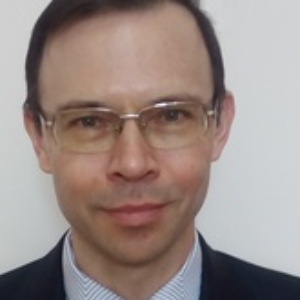Title : Evaluation of the potential and efficiency of geothermal system performance in closed mines
Abstract:
The study focuses on evaluating the potential of geothermal system in closed mines. The designs of existing open-loop and closed-loop geothermal systems in different countries, their thermal capacities and efficiency criteria are analyzed. The study encompasses preliminary assessment and ranking of closed mines in Ukraine and Germany as well as the detailed modeling of individual cases. 27 mines in the Donetsk coal basin of Ukraine (Donbas) and 28 mines in the Ruhr coalmining area (Germany) were selected for analysis, with the depth of mining from 300 to 1200 m in Donbas and from 400 to 1600 m in the Ruhr area. The geothermal gradient was evaluated based on the measurements of the deep heat flux in the Donbas area and the rock temperature at a depth of 5 km in the Ruhr area.
To rank the selected mines according to the efficiency of mine water and rock heat recovery, five critical parameters were evaluated; they include the conversion factor of heat pumps COP, the energy balance relation, thermal capacity, profit from operation, and the CO2 emission reduction. The energy balance relation was introduced by the authors earlier; it is defined as the ratio of the generated thermal energy to the thermal equivalent of the electrical energy spent for running the system.
Closed mines in Donbas as potential sites for heat recovery were ranked both according to the five parameters individually and according to the relative complex criterium that include all ranks in equal shares. The theoretically achievable thermal capacity of potential open irreversible geothermal systems in the Donbas mines is estimated from 1.56 MW to 24.41 MW, the COP for heat pump from 4.73 to 9.74, and the energy criterion from 2.10 to 4.33 with average the values of these parameters of 11.09 MW, 6.08 and 3.02, respectively. The same parameters in the Ruhr area refer to the ranges 0.98-111.2 MW, 3.80-6.30, and 2.73-3.98, respectively, with average the values of 29.8 MW, 4.80 and 3.04.
To calculate the performance parameters of individual geothermal systems, the authors have developed mathematical models using different approaches. The first approach includes analytical calculations of the hydraulic flow in a system of several connected workings and the temperature of water pumped out by water hoisting from the shaft. The second approach is based on finite-difference modeling of the flow of underground and mine waters and heat transfer in a mined-out rocks around the geothermal system, which is appropriate to analyze in detail the impact of technology features and natural conditions on heat recovery. The third approach is proposed for closed-loop geothermal systems and includes numerical solution of 1D heat transfer equations in tubes of a borehole heat exchanger with boundary conditions of heat exchange with surrounding soils and mine water and a detailed consideration of thermal resistances in the exchanger regarding the internal geometry.


